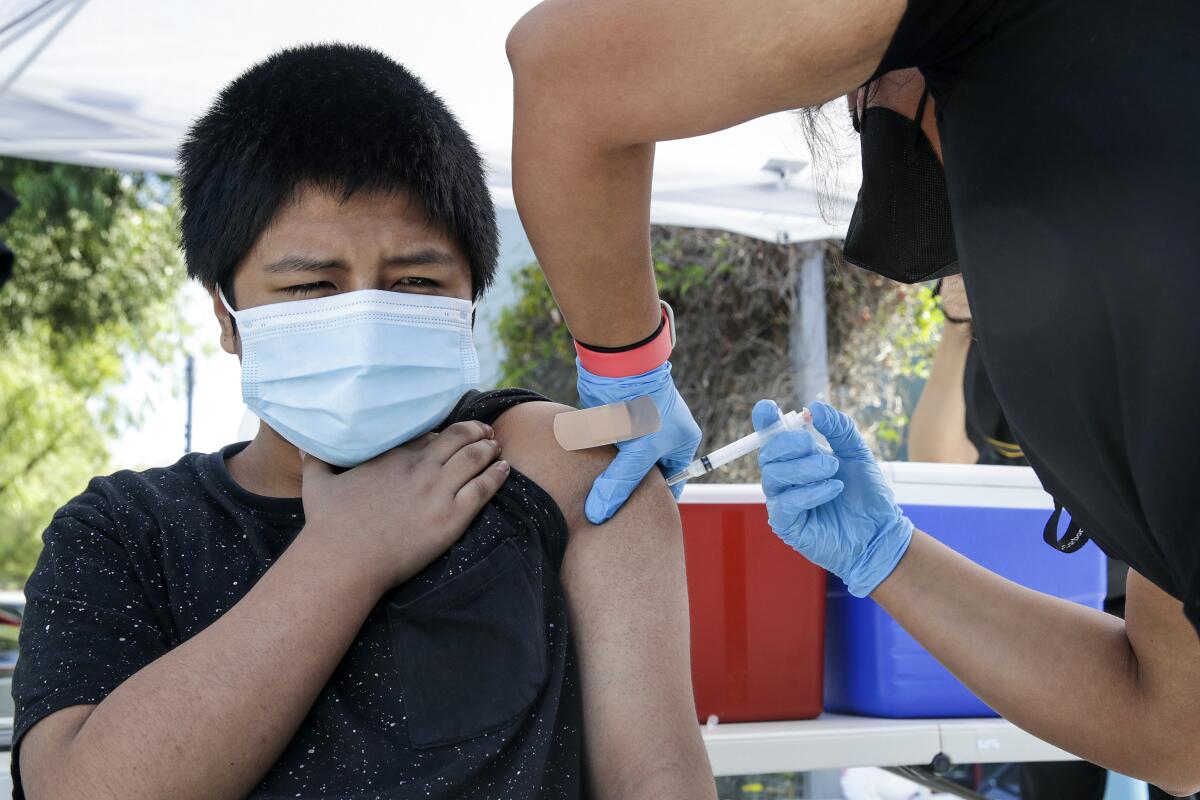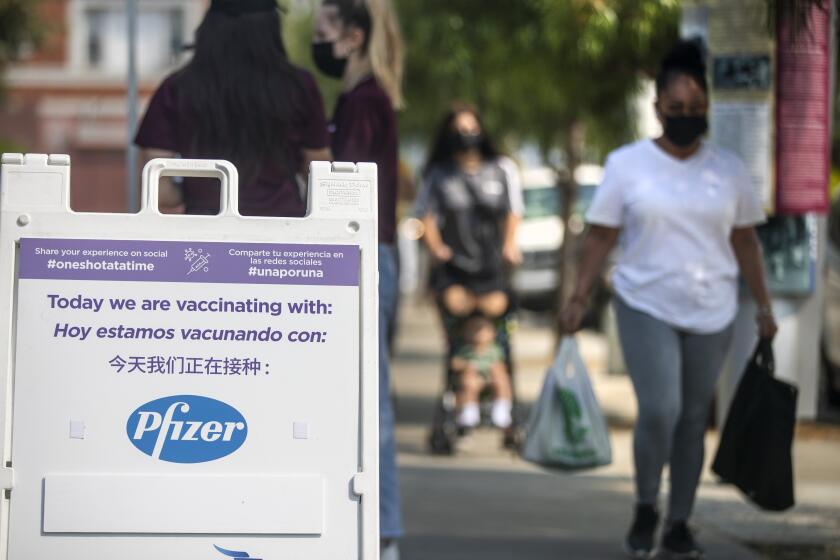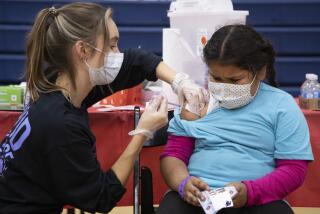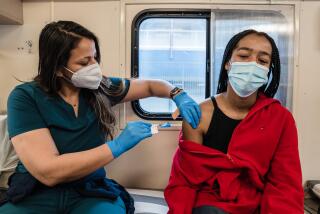Editorial: Should schools mandate COVID vaccines for children? Yes, but they need to be fair

- Share via
Good for California health officials, who are considering a vaccine mandate for the state’s school-age children.
Health and Human Services Secretary Dr. Mark Ghaly revealed the state’s thinking on the matter during a briefing Thursday. In mandating COVID-19 vaccines for all eligible students — which currently means ages 12 and older — the state would be taking a page from the Los Angeles and Oakland unified school districts, and a couple of others as well.
The state’s cautious approach to the Delta variant has contributed to a drop in infection rates; California now has the lowest COVID-19 transmission rate in the country. Let’s keep up the good work with more vaccinations and judicious use of face masks.
But … but …. it’s incumbent on state officials to go about this fairly and in accordance with the science. The Pfizer-BioNTech vaccine, the one furthest along in the approval process for kids, does not yet have final approval from the U.S. Food and Drug Administration for 12- to 15-year-olds. Though this younger group is eligible to receive the vaccine, that’s under emergency use authorization, which provides opportunities to refuse the vaccine. Final approval has been given for people 16 and older.
Now that the Pfizer-BioNTech COVID vaccine has received full approval, employers and public businesses have legal cover to start issuing mandates for employees and customers. And they should.
Ghaly noted — as have various school officials — that the state already has one of the strongest immunization mandates in the nation for students. It allowed exemptions only for students with medical conditions that make vaccination dangerous for them, and covers charter and private schools as well as traditional public schools. It makes sense, under this way of thinking, for COVID-19 vaccination to follow that pattern.
True, but all of the required childhood inoculations have the final approval of the FDA for use in children. If the FDA wants more data before issuing its full OK for younger adolescents, the state should be following the lead of the agency charged with examining these matters. California can and should encourage the vaccines for all eligible kids but should wait for the federal signal before forcing the issue.
That’s simply sound, science-based policy. In addition, one of the big — though false — claims against vaccine mandates is that the government is trying to push an “experimental drug” onto the public. The state as well as local school districts only feed that perception if they force kids to be vaccinated before full approval is in place. The FDA is expected to issue that OK for kids 12 and older within a couple of months — and for younger groups not too long after.
Teachers and other school staff have to be vaccinated. The situation is a little cloudier for students, but it’s not too early to mandate vaccinations as the FDA approvals roll in.
The state also would need to eliminate inconsistencies in its rules. Teachers and other school staffers are under a state mandate to be vaccinated or receive regular testing. Why should they have an out if students wouldn’t? In the Los Angeles Unified School District, the rule is vaccination and testing for staff, not vaccination or testing. But it provides a religious exemption for staff, while there isn’t one for students.
If someone spends school days on campus or in school offices, and there is final FDA approval for them to be vaccinated, they should be required to do that, with exemptions for medical reasons only. As the state considers vaccine mandates to make schools safe, it also should design those rules to be fair and consistent.
More to Read
A cure for the common opinion
Get thought-provoking perspectives with our weekly newsletter.
You may occasionally receive promotional content from the Los Angeles Times.











